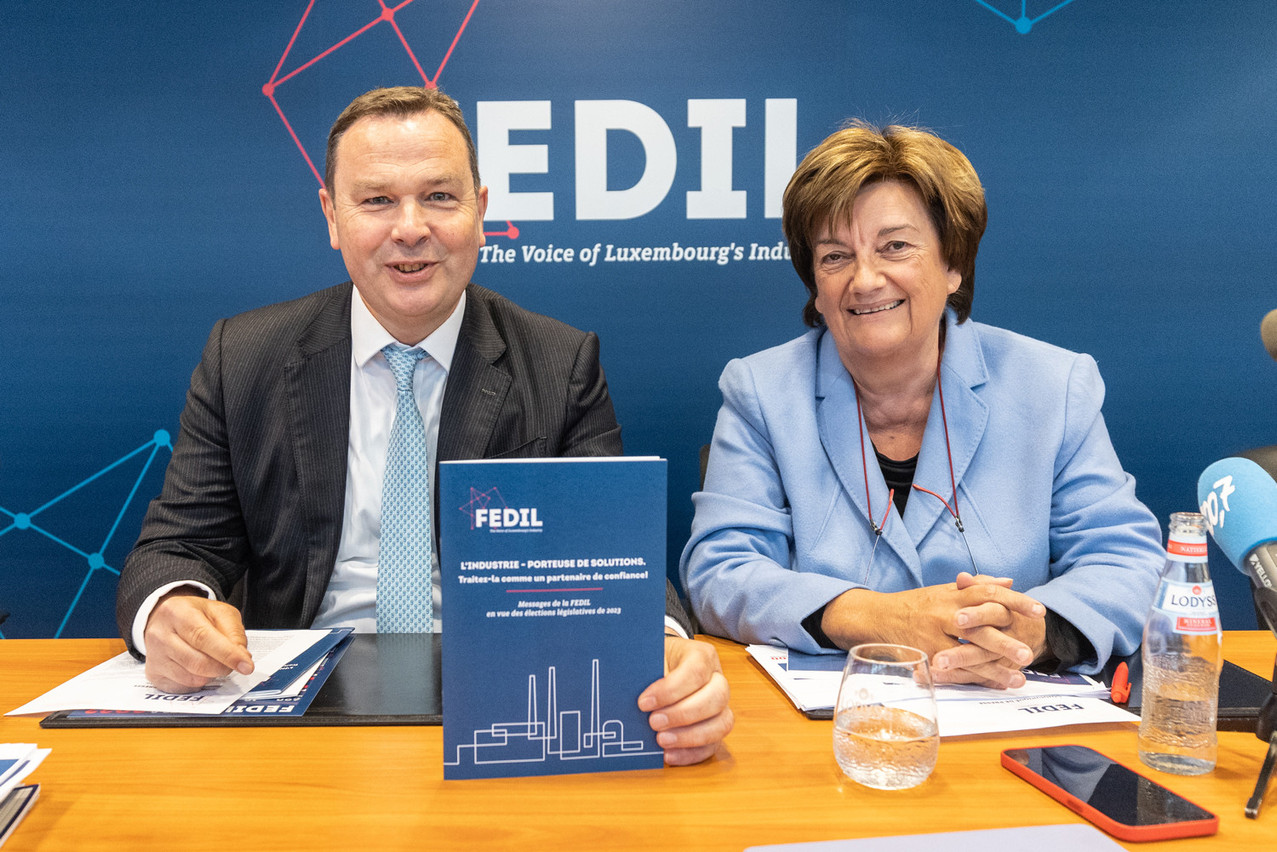“Industry as a provider of solutions. Treat it as a trusted partner,” is Fedil's message for the October 2023 general elections. The industry federation presented proposals to the country’s various political parties last year, which it also published recently. One of the proposals is to increase the effective working time of employees.
“The idea is to increase the working time of employees for those who wish to do so,” explained Fedil president on Thursday 16 March. While general secretary Marc Kieffer conceded that 40 hours of work per week is the norm today, he criticised the system of overtime, which generates additional costs. His proposal? “As long as you achieve an average of 40 hours a week, there is no overtime to pay.” In short, an employee could work 50 hours in one week and 30 hours in the next, so as to balance his or her private life and professional life, but also the employer’s bill.
Read also
Fedil, which represents 690 members and 21 sectoral associations, also advocates ensuring better control of the veracity of medical certificates, reducing the attractiveness of replacement incomes (like wages paid during parental leave) and “refraining from new rights for employees allowing them not to work.” Special leaves such as those for training or family leave are particularly targeted.
36 hours a week? “Irresponsible”
Fedil points out that a draft law is being prepared to transpose a directive on reconciling private and professional life, which would provide for leave with up to 100% pay. “This is again an incentive not to be present at work. With all the leave that is appearing, the actual working time is decreasing,” Kieffer insisted.
As for the LSAP's wish to see , the general secretary retorted that “this proposal is totally irresponsible, simply because they want to impose a general solution which does not meet the needs of the variables from one individual to another and from one activity to another.”
Energy crisis
The subject of labour relations and talent accounted for the majority of requests for personal advice handled by Fedil last year, its annual report shows. In second place was energy and the environment, in the context of the current energy crisis.
In this respect, the Luxembourg organisation has identified threats to the European and Luxembourg industrial fabric: the drop in foreign direct investment in the 27 member states, but also the lack of new industrial projects in Luxembourg to ensure the renewal of the fabric.
“The regulatory and economic framework is unfavourable to industrial development,” commented . The Fedil director also listed the paradigm shift in the Grand Duchy, once attractive for its moderate energy costs. “Yesterday [Wednesday 15 March], the Prime Minister made an , saying that the situation regarding energy prices had changed and that the project was no longer a priority.”
This story was first published in French on . It has been translated and edited for Delano.
